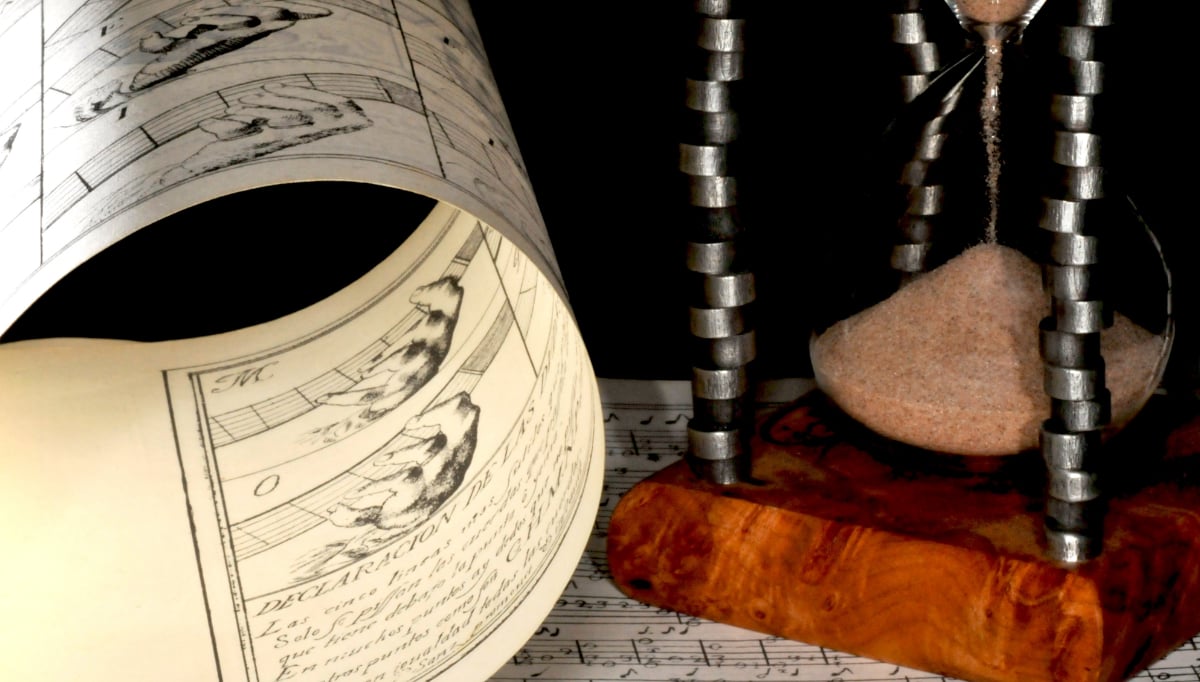“Time is the mechanism God created to keep everything from happening all at once.” I don’t know who said that, but focused guitar practices are time well spent.

Having a Set Time for Practice
So, you’re going to practice really, really hard and become a guitar superstar. You’ll need to practice, practice, practice, and when you’re finished, you’ll need to practice some more. Eventually, you will come to a point of practicing your practice. Which is what I like to write about in these blogs.
The first thing you’ll need is a set time to practice. This isn’t a set-in-stone, unmovable time, but a consistent time. A time set aside to focus on this instrument you’ve chosen to pursue. For me, I’ve tried many different time slots of the day, before dinner, after dinner, after work, late at night just before bed, and lunch hour, but the best time I’ve found for me is in the morning. After my shower, coffee, and Bible reading, I’m ready for an hour or two of playing the strings and working on my technique, new pieces, and repertoire.
On occasion, I’ll work through the technique and new music portions of the practice and play the repertoire at night, just before bed. Most times this helps me relax. The point is: to find a time in the day that works as well for your schedule as it does your mind. I find that mornings work best for me. My mind is fresh and ready to go and to work out the challenges that await.
Having a Set Time to Practice
Hang on there Mr. Pauly Guitar man, you just covered that. Not so fast, my dear guitar friend. Reread the headings. Once you have determined the time of day to practice, then determine the amount of time you will practice. My full-blown practice regimen consists of 2 hours. If I’m up by 7 AM and ready to play by 8 AM, I have plenty of time to do my full workout. The only hard part is that I’m a night owl and getting up early is hard.
Setting a block of time to practice is well worth the effort. It’s a time to focus. It’s a time to work through those exercises so critical to your success as a musician. The person who plans their time will have success in time. If you don’t have 2 hours for practice, practice for an hour. If you don’t have an hour, practice for 30 or 45 minutes.
Having a Set Place for Practices
As important as it is to have a set time to practice, it’s important to have a set place to practice. Having a dedicated room, home studio, or a place where you can just get away from it all for a short amount of time is significant. Not only will you have time to focus on your pieces and the technique you need to work on, but you can also do it without distractions. A distraction-free place of solitude with the silky-smooth sounds of a nylon-strung guitar… and a metronome. It takes me away.
Having a dedicated place to work on your music will help box your time in. I usually have my time in my corner where I have enough space for my practice book, a chair, my fan, and my phone (i.e. metronome) (At the time of this writing, I have a studio corner instead of a room because we live in a small house). When it’s nice outside, I enjoy practicing on the back porch.
Also, I would be remiss if I didn’t mention to beware of phone distractions. I use my phone for a metronome, but I know for some people that might be a temptation. If the phone distracts you, buy a metronome. You can order one…. on your phone.
Having Planned Practices
As they say: “Plan your work, work your plan.” Having a focused regiment. In my two-hour practice sessions, I have 12 sections of techniques and routines that touch on pretty much every aspect of the guitar (that I’m aware of). I spend five to ten minutes each on eight sections of technique. I spend about 10 minutes or so on sight-reading, 20-30 minutes or so on a new piece, 3-5 minutes on pieces I’m ready to film, and roughly 15-25 minutes on repertoire. That’s my long practice.
In my short practice, I spend about 30-45 minutes working on the basics: scales, arpeggios, slurs, stretches, and repertoire. Then there are those days when I sleep in.
Conclusion
The big idea here is to have a set time to focus on tasks that will make you a better guitarist. While the structure can become complicated, the goal is not. The goal is to play beautifully on this wonderful instrument God has given us.
If you like this blog post, you should sign up for the monthly newsletter and consider sharing it.




Comments ()